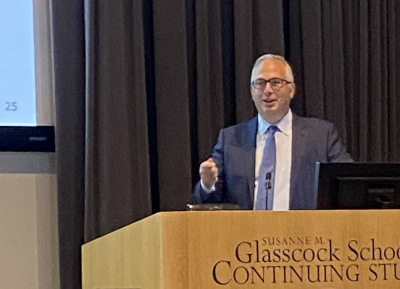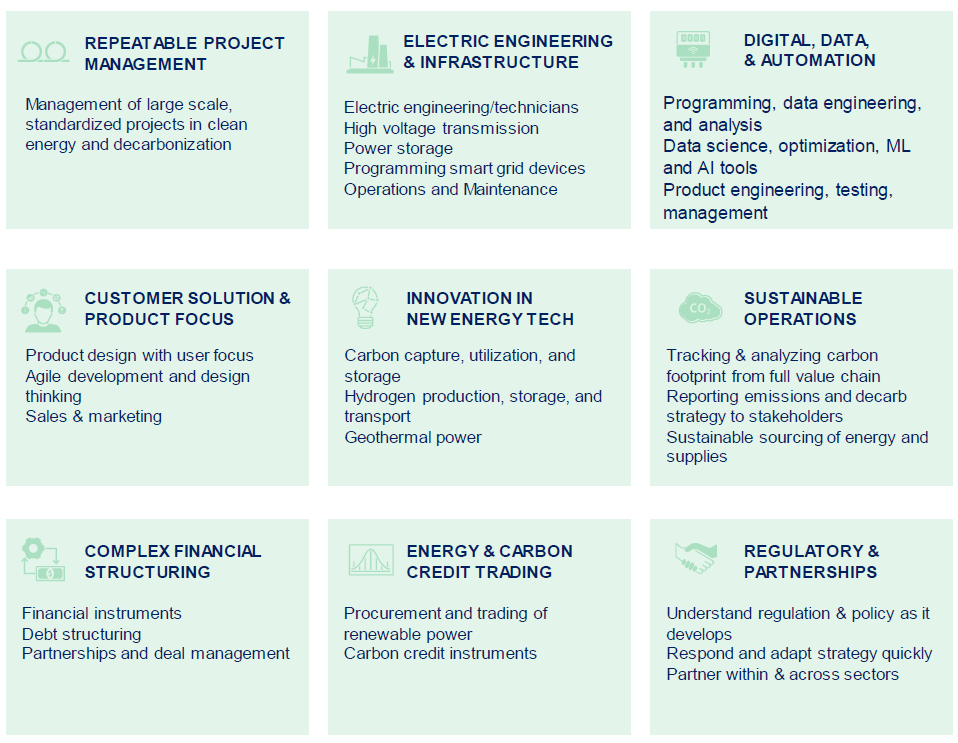 Today we’re hosting a Sustainability Summit at Rice University with senior leaders from across the vibrant energy sector in the Houston area. The focus is on successfully managing the global energy transition and Houston’s leading role in the global energy business. Bobby Tudor, Tudor, Pickering Holt & Company co-founder, Artemis Energy CEO, and Chairman of the Houston Energy Transition Initiative (HETI), is kicking off the day by discussing the strategies and actions of HETI. You can hear some of Bobby thoughts in an earlier podcast.
Today we’re hosting a Sustainability Summit at Rice University with senior leaders from across the vibrant energy sector in the Houston area. The focus is on successfully managing the global energy transition and Houston’s leading role in the global energy business. Bobby Tudor, Tudor, Pickering Holt & Company co-founder, Artemis Energy CEO, and Chairman of the Houston Energy Transition Initiative (HETI), is kicking off the day by discussing the strategies and actions of HETI. You can hear some of Bobby thoughts in an earlier podcast.
Bobby opened his talk by highlighting the challenge that the energy transition is expected to create massive changes in the energy economy. According to McKinsey Energy Insights, the share of renewables will more than double by 2050 (~31% vs. ~15% today) and will become the leading fuel in a Net Zero 2050 case. Bobby explained that given Houston’s leading role in the global energy markets, Houston could lose up to 650K jobs if no actions are taken to respond to changing energy landscape.
However, with decisive action to lead the energy transition, Houston could gain 600k additional jobs from induced and new energy jobs created. He highlighted nine capability sets for the future Houston energy workforce.

These nine capabilities represent around 75% of 2050 energy capability needs. Traditional talent tied to fossil fuels will shrink but still be sizable. Existing talent in renewables, electrification, and digital will expand. Nascent talent in new technologies, while small today, will grow quickly.
HETI’s vision is to leverage Houston’s energy leadership to accelerate global solutions for a low-carbon future. Here are the tenants of this vision:
- Drive sustainable and equitable economic growth in the Greater Houston region through a portfolio of technology, policy, and market initiatives that embrace and create value from the world’s transition to low-carbon energy systems.
- Delivering on this vision requires us to build upon our history of leadership in the energy and chemical industries, provide new opportunities to our people, and leverage our assets and existing expertise while creating conditions to attract new and innovative talent and capital.
- A successful effort would result in economic growth and a positive impact on the environment, thereby placing Houston as the leading hub of energy and clean tech innovation.
Actions will be driven in three domains—jumpstart emerging sectors where Houston has a distinct advantage, attract and support companies in established “new energy” industries, and deploy cross-cutting initiatives to attract and grow companies in all energy value chains. An example of a distinct advantage is that 60% of the world’s hydrogen pipelines are in Houston, so it makes sense that Houston leads the energy carrier transition from carbon-based energy to hydrogen energy.
To execute this vision across value chains, a collective effort from government, industry, philanthropy, and academia should focus on seven core pillars.
Gatherings like this Sustainability Summit bring leaders together to form and advance collaborative efforts to make progress on each of these pillars. Each of us has a role in driving this energy transition forward.

